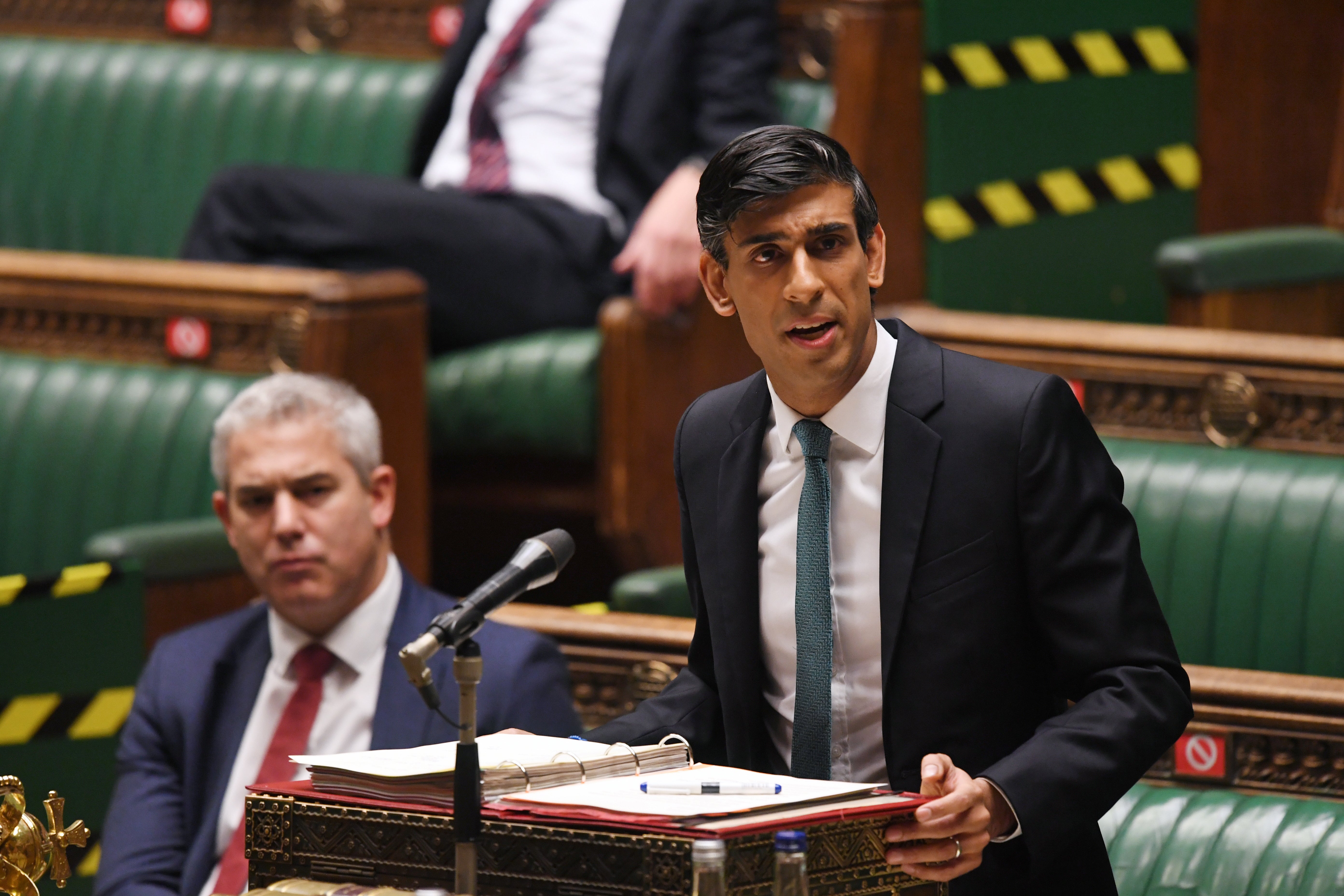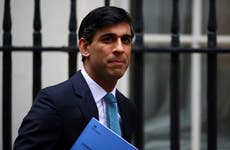Removing the cradle of support for the economy can only be done slowly
Editorial: The vaccination programme is the obvious catalyst for growth but the chancellor must be cautious until there is firm evidence of economic recovery

Poised like a coiled spring” is one of those phrases that is nowadays only used ironically, a bit like “Global Britain”, “world-beating test-and-trace system”, or (even for its fans) “Arsenal Football Club”.
A sense of irony, at least in public, is a handicap for central bankers, so we can only assume that the Bank of England’s chief economist, Andy Haldane, seems entirely sincere in his optimism about economic recovery. He said: “The economy is poised like a coiled spring. As its energies are released, the recovery should be one to remember after a year to forget.”
He had better be right. As he was composing his upbeat message, Mr Haldane probably had an inkling that the Office for National Statistics was about to report a 10 per cent drop in national income during 2020, with the sharpest recession since the “great frost” of 1709.
As Mr Haldane indicated, there are some grounds to believe that the bounceback could indeed be of coiled-spring proportions. The vaccination programme is the obvious catalyst, adding an unfamiliar feel-good quality to news reports about Covid-19.
Thirsty consumers might attempt to make up for lost drinking time at an alarming rate once the pub gardens reopen and spring has sprung. From garden centres to university campuses to theatres, the public will be back in force. The savings that luckier households have amassed through forced confinement will find their way into car showrooms and the holiday trade. It will take more than a global pandemic to make the British public thrifty. Doubling up on foreign holidays and meals out will make 2021 a very topsy-turvy year.
Nonetheless, there is cause for caution, and in particular as the chancellor approaches his Budget. Removing the cradle of support for the economy can only be done slowly and as evidence of recovery builds. For we cannot be confident yet that Mr Haldane is right.
The pandemic is unprecedented in the era of modern economic management, and we do not know what the “new normal” looks like. The signs are that the pandemic has given a shove to long-term trends, such as the drift to online retail and remote working. Some jobs, in other words, will not return to life once they come out of the deep freeze. There will be higher structural unemployment and more businesses will go bust, even as others enjoy a bounceback boom.
Then there is the virus. Mr Haldane is a fine economist and, as we see, an effective communicator, but he’s not an epidemiologist (nor, to be fair, does he claim to be). The coronavirus has made fools of officialdom many times in the past year, and it could turn the “coiled spring” into something more like a child’s broken Slinky slowly dragging itself down the stairs. That’s nothing to look forward to.
The encouraging news is that Mr Haldane and his central bank and finance ministry colleagues around the world (notably the new US treasury secretary Janet Yellen) have declared their continuing willingness to “act big”. Creating money isn’t as effective a defence against Covid-19 as vaccines, but it has been quietly effective over the past year. As with the financial crisis of 2008, the Bank of England has again itself responded to a crisis with all the energy of a coiled spring, even if it is too modest to say so. Long may it continue.



Join our commenting forum
Join thought-provoking conversations, follow other Independent readers and see their replies
Comments